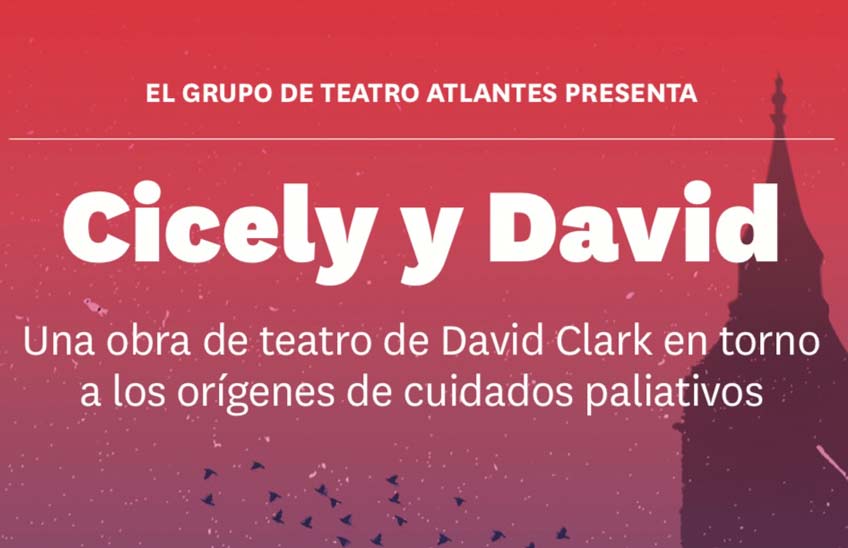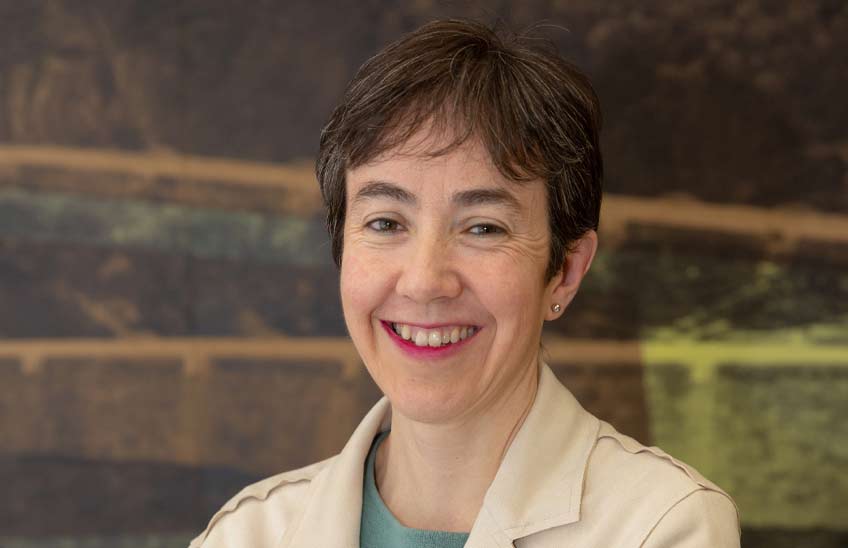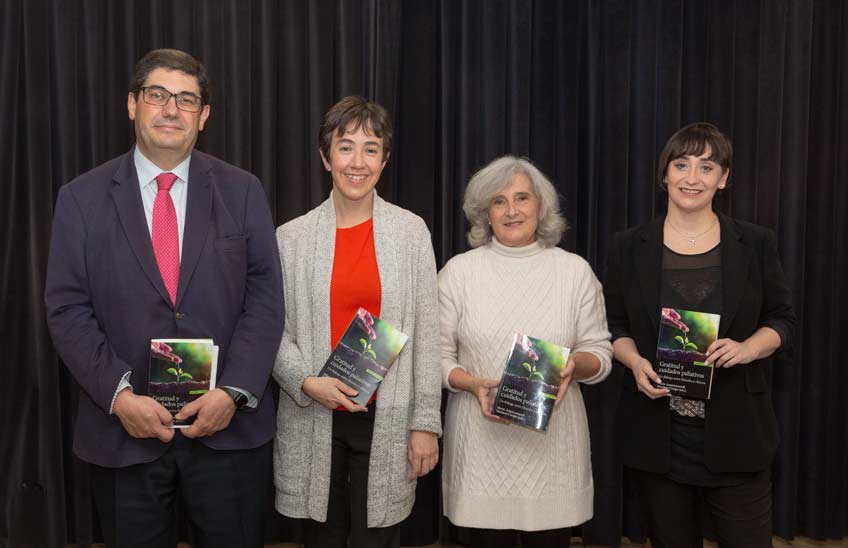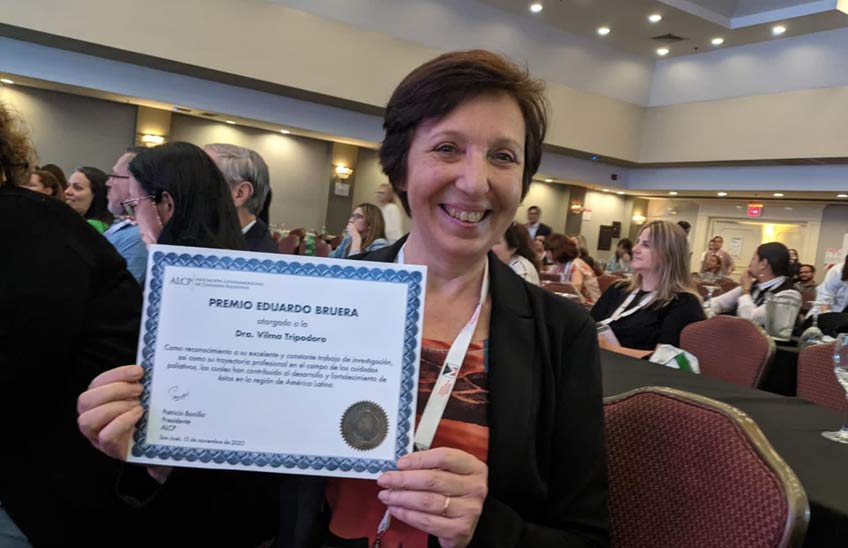"Times of crisis are fertile ground for fake news."
ICS researcher Sarali Gintsburg has participated in the presentation of the results of the European project 'CoMMiTTEd - Covid, migrants and minorities in the training professor ', of which she is a member.
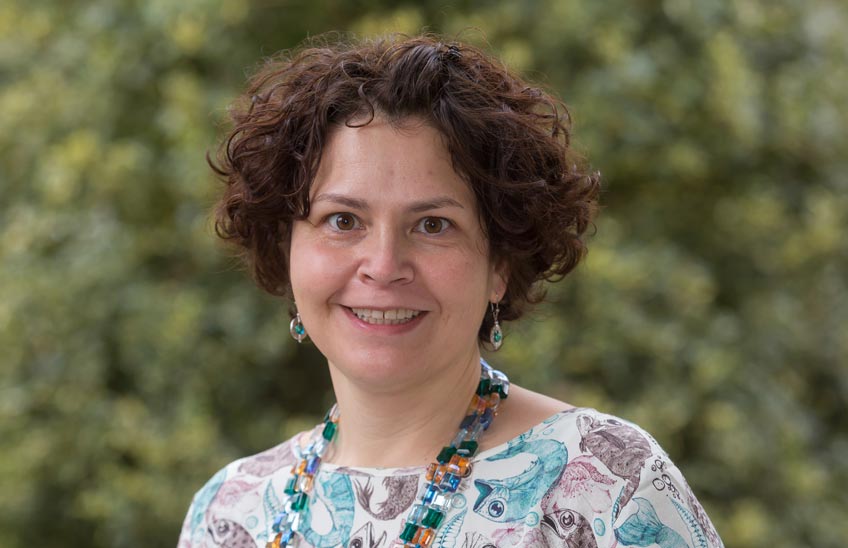
FotoManuel Castells<br>/Sarali Gintsburg es la investigadora responsable del proyecto CoMMiTTEd en la Universidad de Navarra.
07 | 02 | 2023
CoMMiTTEd is a research project that aims to promote critical thinking about internet content about minorities and migrants among school and high school faculty , as well as to provide didactic materials to work on critical reading with teenagers. It is funded by the Erasmus + program of the European Union.
It is led by the University of Hamburg (Germany) and includes experts from the universities of Aveiro (Portugal), Tilburg (The Netherlands) and the University of Navarra (ICS). Institute for Culture and Society (ICS) of the University of Navarra. Specifically, on behalf of the group 'Public discourseThe participants are Sarali Gintsburg, Ruth Breeze, Ana María Fernández and Dámaso Izquierdo.
CoMMiTTEd partners presented in an online event some results and fruits of project and gave presentations on issues such as Education in the age of misinformation, critical analysis of political issues and the role of teachers in combating fake news. On the occasion of this event, Sarali Gintsburg, researcher manager of project on behalf of the University of Navarra, reviews some of the issues in this interview.
- What are the most effective strategies for educating teachers in digital literacy so that they can develop their critical capacity in the face of fake news?
In the global context this task is strongly linked to the. self-directed learning. This has gained great importance in the context of the digitization of Education and the increase in speed and Issue of information that we must process on a daily basis. In this framework, educational institutions simply do not have time to adapt to these changes and offer official courses at staff professor , so the option of self-directed learning is increasingly being contemplated. With our project we offer this possibility to those who are willing to explore its potential and benefits in a professional environment, as we offer a ready-to-use set of tools.
- In turn, what are the most effective strategies for teachers to be able to train their students in critical thinking in the face of fake news?
I think the most efficient strategy would be to teach studentsthe mechanisms behind the appearance and circulation of fake news. Showing them in a convincing way how something is fake and why nobody pays attention to it and what consequences it has on our lives is quite an efficient strategy. As part of our project, we developed several tools that we hope will help teachers educate their students about the topic of fake news. We also offer several ideas for introducing the topic of fake news as part of the teaching of various subjects: mathematics, language foreign, as well as Philosophy and ethics, among others.
- From agreement with the experience of project, what are the most frequent types of fake news that are usually present in the field educational (immigration, minorities, politics, etc.)?
Fake news covers practically most of the topics we can think of. This has to do with the mechanism of how they are created and spread. On the one hand, our society and educational standards tell us to develop critical thinking and exercise our right to have alternative views - the famous European rationality that sprang from Cartesian doubt. On the other hand, our Education is increasingly fragmented. This means that we teach children to think critically without giving them any basis they can use to design a holistic view of reality. In other words, these days our society functions in this paradoxical way: every time we hear something we don't like, we look for alternative facts or points of view.
- Are the younger generations especially vulnerable to this?
Yes, as they use as source of information what they find on network and get into the habit of ignoring anything they don't like. Often, this attitude leads to fake news, as it is driven by the desire to justify personal likes/dislikes and not by the desire to know the truth. I would like to emphasize that it is very important to have critical thinking skills and the right to have access to alternative points of view is also vitally important, but this should always be accompanied by a solid Education and a good knowledge from topic.
In our project we also teach that the Issue of fake news grows exponentially in times of crisis: we experience tension, we are stressed, we have fears and, therefore, we feel the need to vent and find some comfort. All this becomes fertile ground for fake news, so we must be especially vigilant.
- At project you specifically addressed the topic of fake news about Covid-19 and minorities. What lessons did you learn about this?
One of the most difficult parts of project was defining fake news. Initially, we thought our job would be easy, that it would just involve selecting a few fake news stories about migrants and Covid that are circulating in abundance, then deconstructing them and proving them to be fake. And that's it. However, when we started the project, we faced some problems from terminology because under the umbrella of fake news many different things are encompassed: information/news that is completely false, information that is partially false, and then information that is accurate but taken out of context. In addition, it is important to consider the motivation behind the production and publication of fake news: there is disinformation(disinformation),misinformation (misinformation) and malicious information(malinformation). It is so complex that some experts prefer to use the term 'information alteration' instead of 'fake news'. I hope that in our project we have been able to address this problem adequately and have produced a balanced but at the same time user-friendly guide that can be applied by current and future teachers.
- What is the Fake News Pedagogical Observatory developed in the project framework ?
It offers a multilingual database of fake news related to the Covid topic and to migrants and minorities that we collected in the four countries participating in the project: Spain, Germany, the Netherlands and Portugal. Each 'national' news item is analyzed in an easy and accessible way in the corresponding language . In addition, we also select one news item from each country and translate the analysis into English. As a result, our observatory can be used by speakers of Spanish, Dutch, Portuguese, German and English. To make the observatory more representative and more interesting to use, we use different sources: newspapers, Facebook and Twitter posts, as well as Tiktok. The observatory is fed with guidelines and a glossary.
- What other resources have you created for trainers?
In addition to the Observatory, we offer two pedagogical modules and an electronic guide , so that school teachers and university professors who are interested in implementing the results of our project in their classes will find these resources useful and easy to use.

